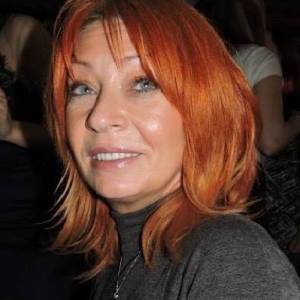The Sisterhood
Narrative (found) poetry: Creating poetry from conversation and interview data.
Although this research project involves collaborative poetry workshops, not all participants were keen, or had time in their busy lives to attend workshops to compose their own poetry. However, this PhD also discusses the possibilities of poetic representation of interview data, using Laurel Richardson’s term ‘narrative poetry’ to describe the storytelling aspect of poetry within social research. Within the use of found, or narrative poetry (using recorded interview data), selected words and phrases become the foundation of the poetry and so, this approach also uses their speech patterns which can somewhat capture the soft nuances of speech – the quite hesitation, irony, and shifts in a voice. The reading, and re-reading of the data, and the reflexivity of this process reminds the researcher not only of who is talking, but also, ‘who is listening?’
The Sisterhood
I liked it when
It was paper and pen
And looking for the book
To write upon
I hate that thing,
That com-pu-ter
It's not for me
We're just not suited.
I wish I hadn't made those plans
I just don't feel up to it
I'll maybe just stay indoors
Watch TV, and quietly chill
But then there is
The Guilt
Of letting others down
And
That wee plant, in the corner,
I forgot to water
(again)
In my mind I see
Blankets, worn and frayed
Cream edges coloured ochre with age
I could disappear for days
On a feathered eiderdown
Patterns stitched with lavender threads,
And piles of books,
Pages folded, over-read.
A favourite song cuts through
The silent room
Stirring thoughts of other days
And chasing away the gloom
Of the dreich winter day.
The project starts tomorrow
I think we're organised
I'll make some tea, the kettle's boiled.
(Did I let the dog outside?)
I'll grab my coat, put some lippy on
I know that I'll be glad I've gone
I know it will change my solemn mood
I like the company - the sisterhood.
(ML, 2016)
In the same way as one would analyse any data, the poem composed here, from an interview with a volunteer, captures the unique aspects of her life. It highlights concerns about limited and unequal resources, and time, that women’s civic engagement and temporal experiences very often continue to circulate around the private – even when concerned with the public, and that not everyone wants to be fully involved, or participate all of the time. Not only does the poem raise these concerns, it shares them in a way that allows audiences to access the interview data differently – in a more thought provoking way, and in a way that make connections with the reader.
Collaboration and co-production can be ensure by allowing participants to read and make changes to the poetry. This is quite easily accomplished by email if research participants are particularly busy and unable to meet. It is a means of ensuring their experiences are conveyed in their own language and with their own meaning attached.
Richardson, L. (1997). Skirting a Pleated Text: De-disciplining an Academic Life. Qualitative Inquiry. Vol 3. pp. 295-304
Artwork by Tracy Dougal @ Denny Community ArtWall https://www.facebook.com/DennyArtWall
- 0
- 0

Comments
Sign in or get an account to comment.


